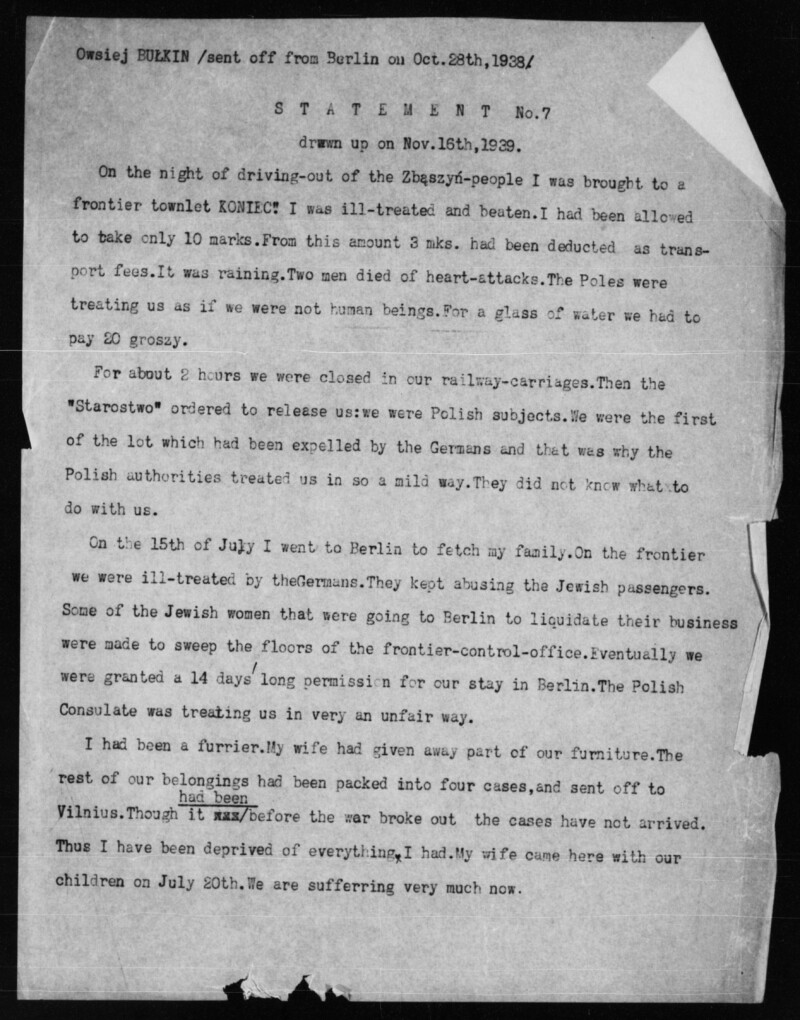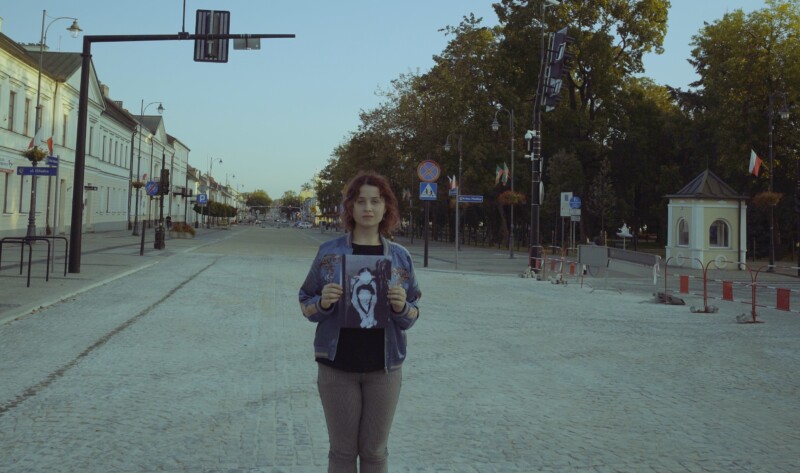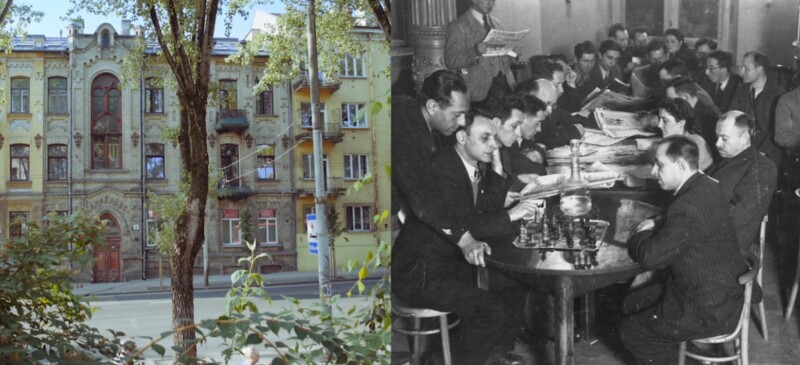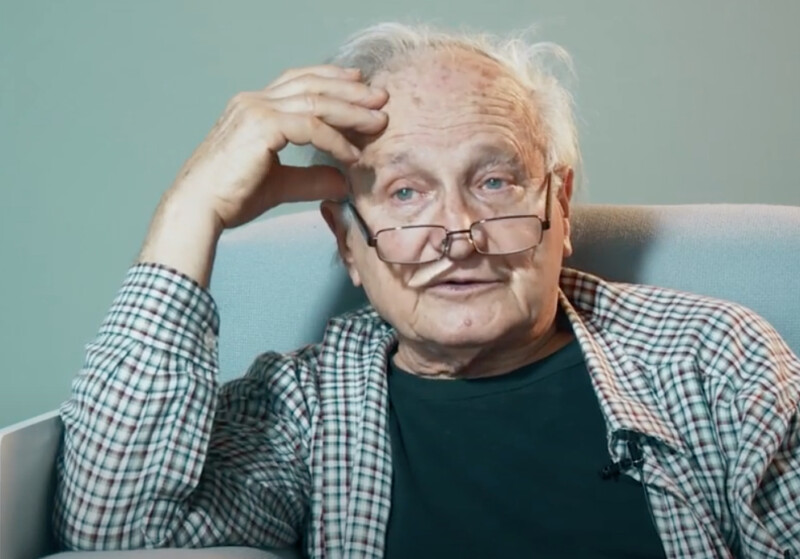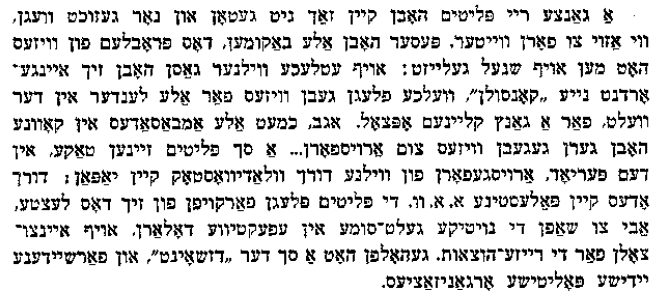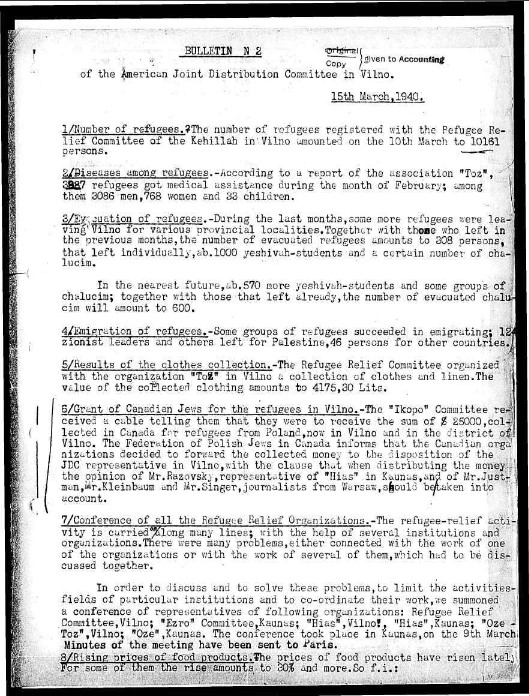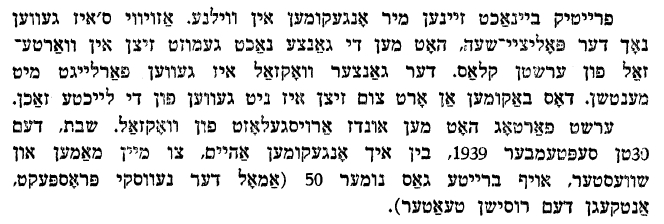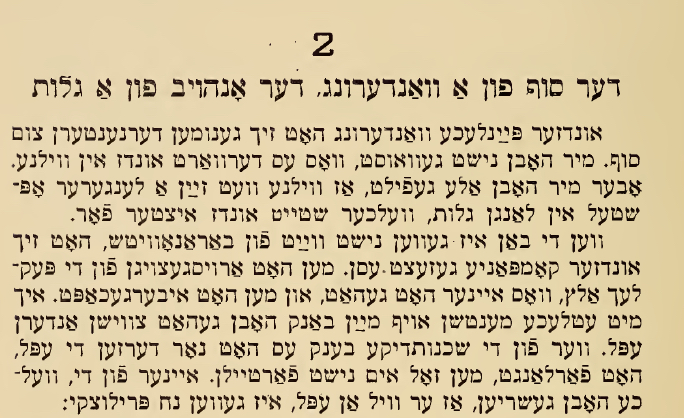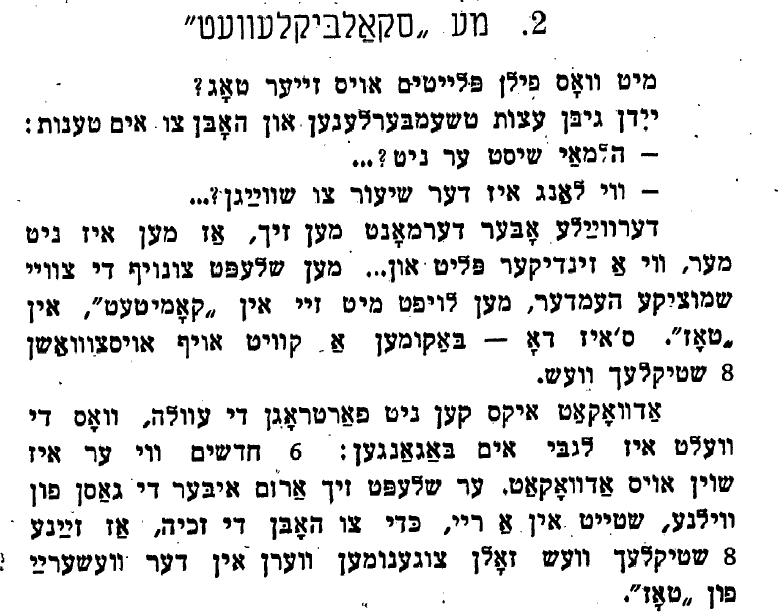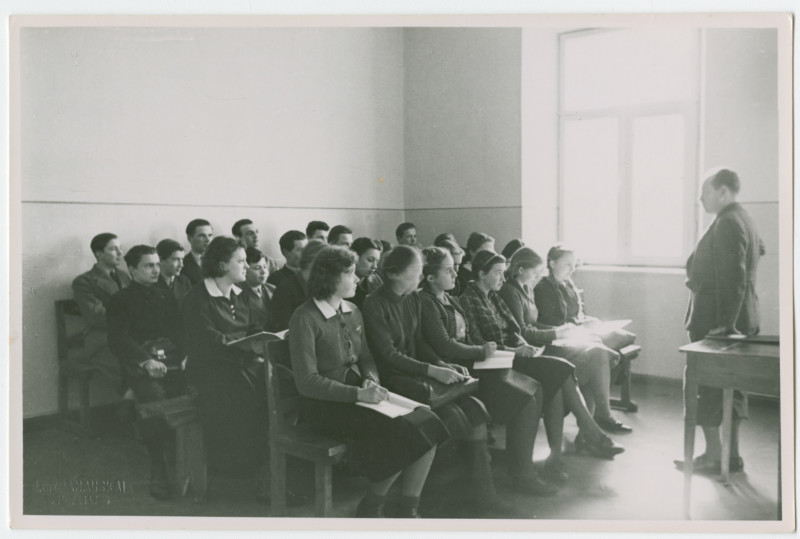Owsiej Bułkin / sent off from Berlin on Oct. 28th, 1938 /
STATEMENT No. 7
drawn up on Nov. 16th, 1939.
On the night of driving-out of the Zbąszyń-people I was brought to a frontier townlet KONIEC. I was ill-treated and beaten. I had been allowed to take only 10 marks. From this amount 3 mks. had been deducted as transport fees. It was raining. Two men died of heart-attacks. The Poles were treating us as if we were not human beings. For a glass of water we had to pay 20 groszy.
For about 2 hours we were closed in our railway-carriages. Then the “Starostwo” ordered to release us: we were Polish subjects. We were the first of the lot which had been expelled by the Germans and that was why the Polish authorities treated us in so a mild way. They did not know what to do with us.
On the 15th of July, I went to Berlin to fetch my family. On the frontier we were ill-treated by the Germans. They kept abusing the Jewish passengers. Some of the Jewish women that were going to Berlin to liquidate their business were made to sweep the floors of the frontier-control-office. Eventually we were granted a 14 days long permission for our stay in Berlin. The Polish Consulate was treating us in very an unfair way.
I had been a furrier. My wife had given away part of our furniture. The rest of our belongings had been packed into four cases, and sent off to Vilnius. Though it had been before the war broke out, the cases have not arrived. Thus I have been deprived of everything I had. My wife came here with our children on July 20th. We are suffering very much now.
At the end of October 1938, in what would set the paradigm for the following anti-Jewish measures by the Nazi State, about 18,000 of Polish Jews living in Germany were deported to Poland as part of the so-called “Poland action.” Many of them became stateless and were caught for months in a no man’s land on the border between the German Reich and Poland. Among them was also Owsiej Bułkin, a Polish citizen who was living in Berlin at the time.
In his short report to the Komitet tsu zamlen materialn vegn yidishn khurbn in Poyln 1939 (Committee to Collect Material about the Destruction of Polish Jewry 1939), he retells his ordeal starting in 1938 with a deportation to the border town of Koniec and forcibly ending, for the time being, in Vilnius in 1939. At the time of his interview, Owsiej and his family had endured forced deportations, expulsions, and flight, antisemitic attacks and maltreatment from Germans and Poles and were stripped from all of their belongings.
Komitet tsu zamlen materialn vegn yidishn khurbn in Poyln 1939 (Committee to Collect Material about the Destruction of Polish Jewry 1939)
Wiener Libary Document Section 532, Series 1, frame 0435.

